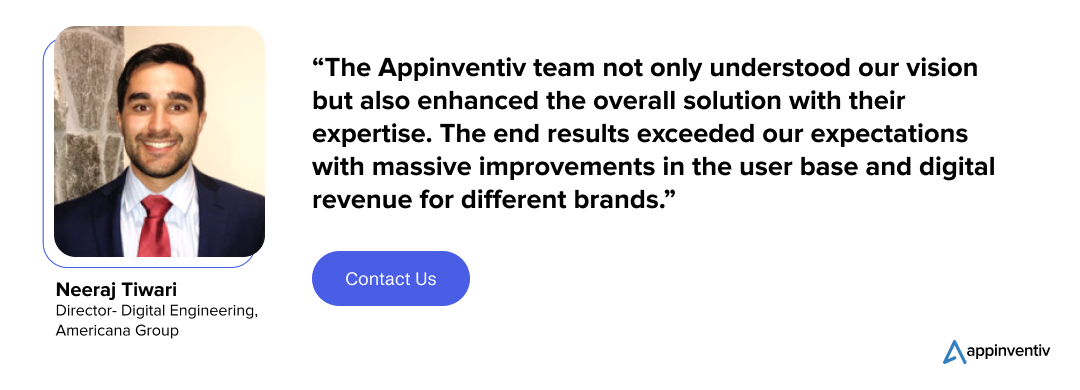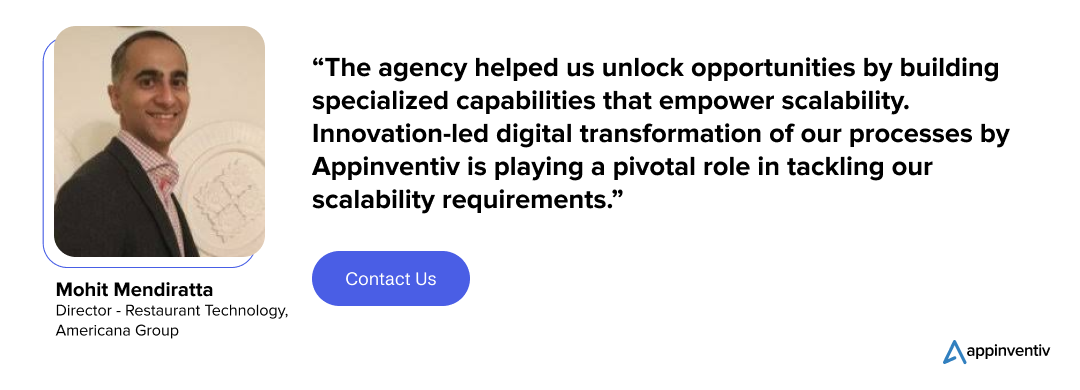- Understanding HungerStation Food Delivery App
- The Cost to Develop a Restaurant App Like HungerStation in Saudi Arabia
- Factors Affecting HungerStation-Like Food Delivery App Development Cost
- 2. Design
- 3. Choice of App Platform
- 4. Backend Infrastructure
- 5. Tech Stack
- 6. Development Costs
- 7. Development Team
- 8. Third Party Integrations
- 9. Maintenance and Updates
- 10. Legal and Compliance Costs
- Key Features to Include in a Food Ordering App Like HungerStation
- Building an App like HungerStation - Steps to Follow
- How Long Does It Take to Develop an App Like HungerStation?
- How Appinventiv Helped Fast Food Giants like KFC and Pizza Hut Expand in the Middle East with Next-Gen Food Delivery App Development
- How Does an App like HungerStation Make Money?
- Unlock the Potential of Saudi Arabia's Thriving Food Delivery Market with Appinventiv
- FAQs
The food delivery app market in Saudi Arabia has been booming in recent years. Statista indicates the online food delivery market in Saudi Arabia is projected to reach $15.13 billion by 2029. This growth is fueled by increasing urbanization and a tech-savvy population that values convenience. With more smartphones and internet access, people are increasingly using apps to have their favorite meals delivered straight to their homes. This trend is set to continue.
Understanding the cost to develop a food delivery app like HungerStation is crucial for anyone looking to enter this market. Basic app development, including essential features, typically costs between $30,000 and $50,000. The costs can range from $50,000 to $250,000 or more for apps with more complex features and a sophisticated user interface. These costs can vary based on the app’s complexity, the development team’s expertise, and the specific needs of the business.
So, what is the HungerStation-like food delivery app development cost in Saudi Arabia? This blog will delve into the details.
Understanding HungerStation Food Delivery App
Before diving into the specifics to build an app like HungerStation, let’s first understand why HungerStation is the leading food delivery app in Saudi Arabia. The app is packed with a range of features and functionalities designed to enhance user experience and convenience.
What made an app like HungerStation set an example? Here’s a brief overview:
- User-Friendly Interface: The app provides an intuitive and easy-to-navigate interface, making it simple for users to browse and select food options from various restaurants.
- Restaurant Listings: Users have access to a comprehensive list of over 55,000 restaurants and stores, including options for food, groceries, and more.
- Real-Time Order Tracking: Customers can track their orders in real-time, from the restaurant to their doorstep, enhancing transparency and reliability.
- Secure Payment Options: The app supports various payment methods, including online payments and cash on delivery, catering to diverse user preferences.
- Push Notifications: Users receive timely notifications about their order status, promotions, and new restaurant listings.
The Cost to Develop a Restaurant App Like HungerStation in Saudi Arabia
The cost to develop a food delivery app like HungerStation can range from $30,000 to $250,000 or more. The total cost of developing an app depends on several factors. These include how complex the app is, the features you want to include, where the development team is based, and how quickly you need the app delivered.
In simple terms, a more complex app with many features will cost more than a basic app with just a few features.
Here’s a brief estimate for food delivery app development in Saudi Arabia.
| App Type | Estimated Cost | Time Frame |
|---|---|---|
| Simple App | $30,000 to $50,000 | 3 – 6 months |
| Moderately Complex App | $50,000 to $140,000 | 6 to 9 months |
| Highly Complex App | $140,000 to $250,000+ | 9+ months |
Factors Affecting HungerStation-Like Food Delivery App Development Cost
As already mentioned, the cost to develop an app like HungerStation primarily focuses on several factors depending upon the business needs and requirements. Thus, understanding the intricacies of each factor is quite important to determine your budget plan.
Here’s a detailed overview of the major factors associated with building an app like HungerStation:
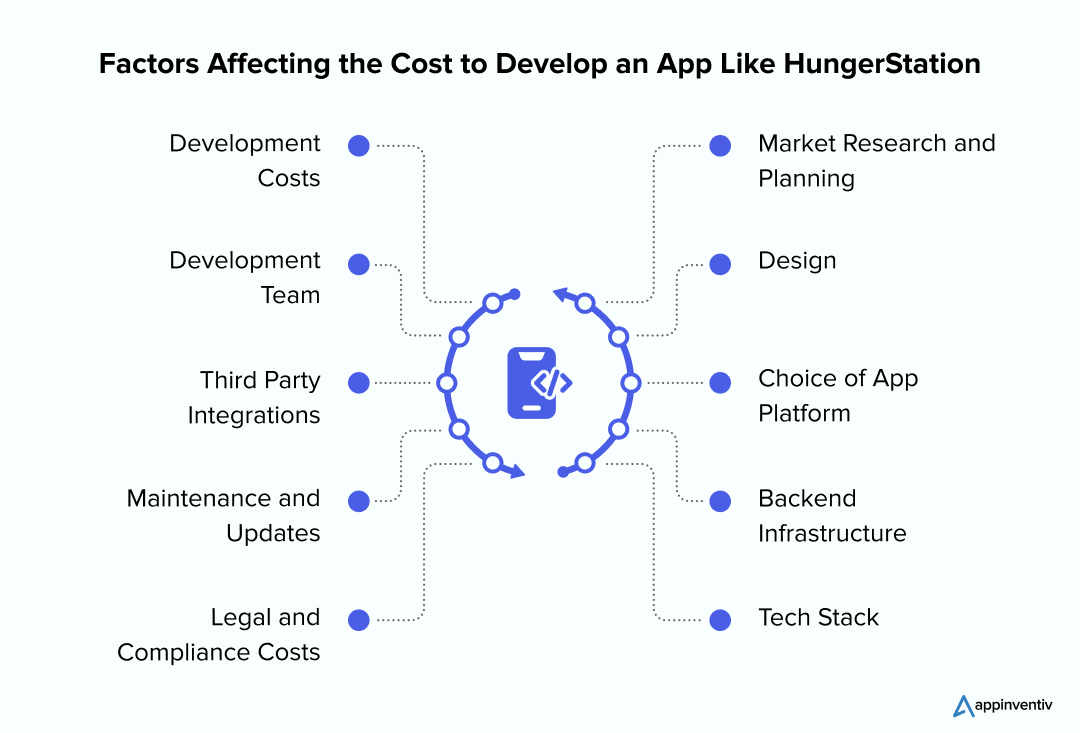 1. Market Research and Planning
1. Market Research and Planning
The initial factor that is bound to affect the cost of food delivery app development in Saudi Arabia is the market status.
A comprehensive understanding of the market involves several key steps. First, conducting thorough market research and planning helps identify current trends and consumer needs. Market analysis and competitor research are essential to assess existing players and find opportunities for differentiation.
2. Design
The design plan of your food delivery app significantly influences its development cost. Features like advanced functionalities, custom animations, and a polished user interface can drive up the cost, similar to food ordering apps like HungerStation. On the other hand, choosing a simpler design with fewer features might lower costs, but it could also make your app less noticeable in a crowded market.
It’s important to balance functionality with aesthetics. A thoughtfully designed app enhances user experience and engagement, which can boost customer retention.
3. Choice of App Platform
Choosing the targeted app platform also plays a big role in determining the cost of building a food delivery app like HungerStation. Android and iOS, both platforms come with their own set of advantages and challenges. This factor can affect the cost concerning complexity, app development time, and resource distribution.
However, there is a silver lining. Opting for a cross-platform development can be a smart move as it offers a good balance between reaching a wider audience and keeping costs down. However, it’s essential to make sure that the app functions smoothly and works well on various devices to ensure a successful launch and keep users happy. Thus, it’s important to carefully weigh your platform options during the app development process.
4. Backend Infrastructure
Choosing the right backend infrastructure is essential for an app to work properly and scale up. The HungerStation-like food delivery app development cost can be greatly affected by how complex the backend is. Key factors include managing data efficiently, processing payments securely, and connecting smoothly with other services.
Investing in a well-designed and secure backend helps the app handle lots of users and run smoothly. Good planning and execution of backend systems can save money in the long run and improve how the app operates, making it an essential part of development.
5. Tech Stack
The choice of technology stack plays a big role in the cost of developing a food ordering app like HungerStation. Opting for high-quality front-end and back-end technologies, along with a solid framework and reliable databases, can make the development more complex and expensive.
However, investing in a strong tech stack is worth it because it leads to better performance, scalability, and long-term durability of the app.

6. Development Costs
The development process involves multiple phases: planning, development, testing, and deployment. Each phase contributes to the overall cost to develop an app like HungerStation; planning sets the project scope and requirements, development involves coding and integration, testing ensures the app functions correctly, and deployment includes launching and initial support.
Additionally, the duration of the project impacts costs significantly. A longer development timeline can increase expenses due to extended labor costs and additional testing and quality assurance. Efficiently managing these phases and timeframes is crucial for controlling the overall budget while ensuring a high-quality final product.
7. Development Team
Your choice of development team (onshore/offshore) plays an important role in influencing the cost to develop a food delivery app like HungerStation. An expert development team with a robust skillset can add up to the overall costs. An offshore development team might allow a scope for cost optimization, whereas an onshore app development team may incur higher costs. Here is the estimated hourly rate of development as per the varying members of the team:
| App Development Team | Hourly Rates (Approx) |
|---|---|
| Project Manager | $25 to $30 |
| Tech Lead (Backend / Frontend) | $28 to $30 |
| Sr. Mobile App Developer | $24 to $30 |
| Sr. Web & Backend Developer | $24 to $30 |
| DevOps | $25 to $30 |
| Business Analyst | $20 to $25 |
| UX/UI | $20 to $25 |
| QA | $20 to $25 |
8. Third Party Integrations
Using third-party services is key to making a restaurant app more functional. Features like payment systems, maps, and social media logins can significantly impact the HungerStation-like food delivery app development cost. These additions improve the user experience by adding useful functions without needing a lot of custom development.
However, each service comes with its costs and challenges. It’s important to balance the benefits of these services with their expenses to keep the budget in check. If managed well, these integrations can enhance the app’s features and performance, leading to happier users and higher retention rates.
9. Maintenance and Updates
Keeping a restaurant app running involves ongoing costs that impact the overall budget. Expenses include hosting, regular updates, and customer support. Developing an app like HungerStation is not a one-time investment; it requires continuous maintenance to fix issues, introduce new features, and ensure smooth operation.
Effective customer support is crucial for maintaining user satisfaction and loyalty. Therefore, it’s important to plan for the recurring cost to develop an app like HungerStation before initiating the development process. Proper budgeting for these ongoing app maintenance expenses is essential to ensure the app stays functional, competitive, and successful in the long run.
10. Legal and Compliance Costs
Legal and compliance costs significantly impact the HungerStation-like food delivery app development cost. These expenses include ensuring adherence to data protection laws, such as GDPR or local regulations, which necessitate implementing robust security measures and privacy policies.
Additionally, costs arise from acquiring necessary licenses, meeting food safety standards, and complying with regional business regulations. Legal consultations and documentation to avoid potential litigation or regulatory fines also contribute to the overall budget.
Key Features to Include in a Food Ordering App Like HungerStation
A great app should come with great features!
Online food delivery app like HungerStation features can vary from simple sign-up to seamless menu navigation to secure payment methods. It’s important to note that adding many features can significantly increase the cost of developing a food delivery app like HungerStation.
Here are some features of a food ordering app like HungerStation:
User Registration and Login: Allows users to create accounts and securely log in to manage their orders and preferences.
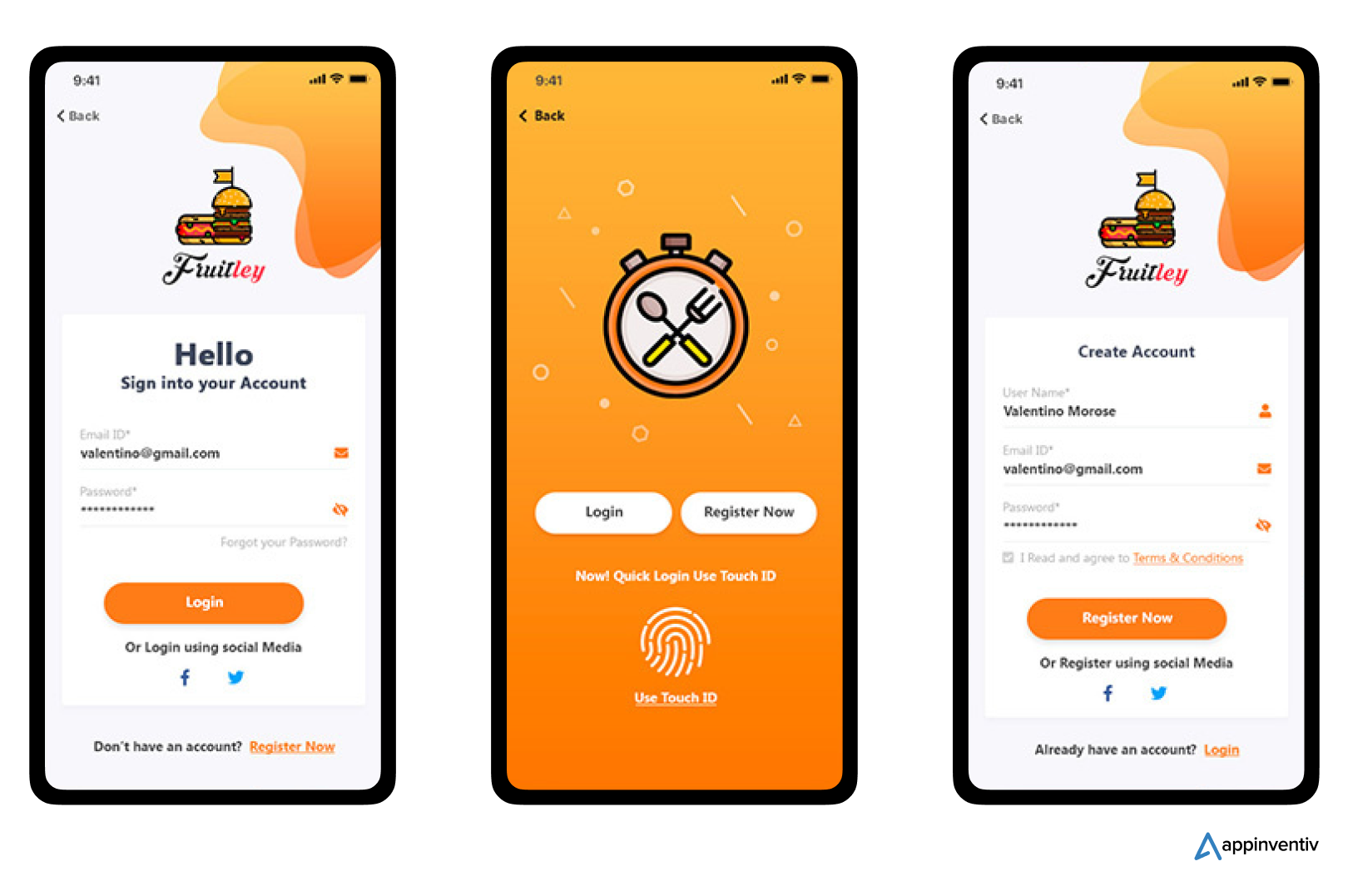
Browse Restaurants and Menus: Provides a list of local restaurants and their menus for easy selection.
Advanced Search and Filters: Helps users find specific dishes or restaurants based on various criteria such as cuisine, price, or location.
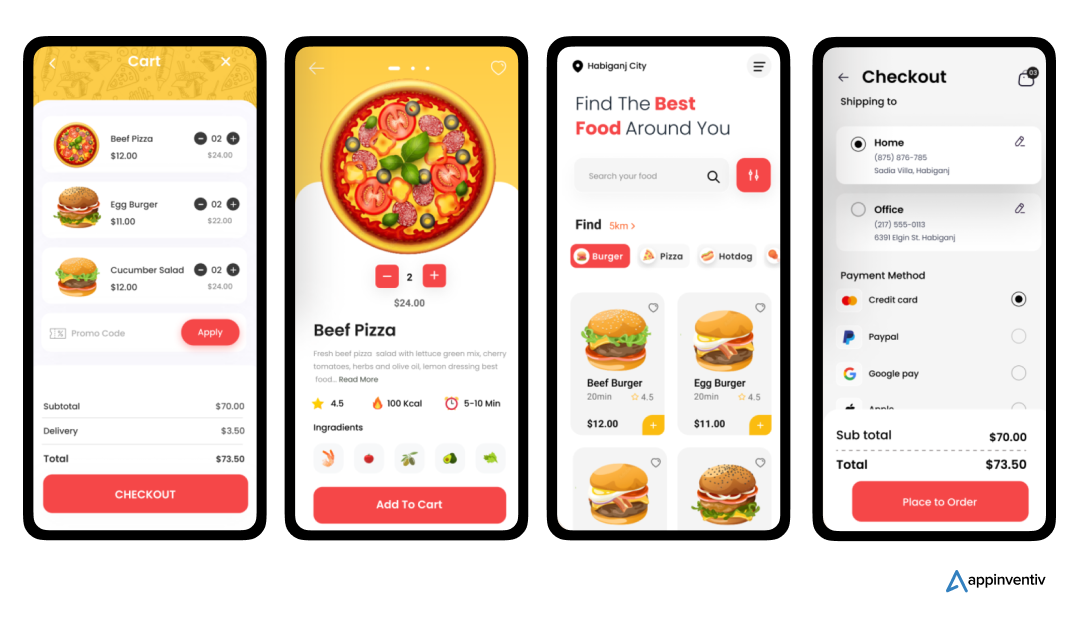
Order Customization: Enables users to modify their orders according to their preferences, such as adding or removing ingredients.
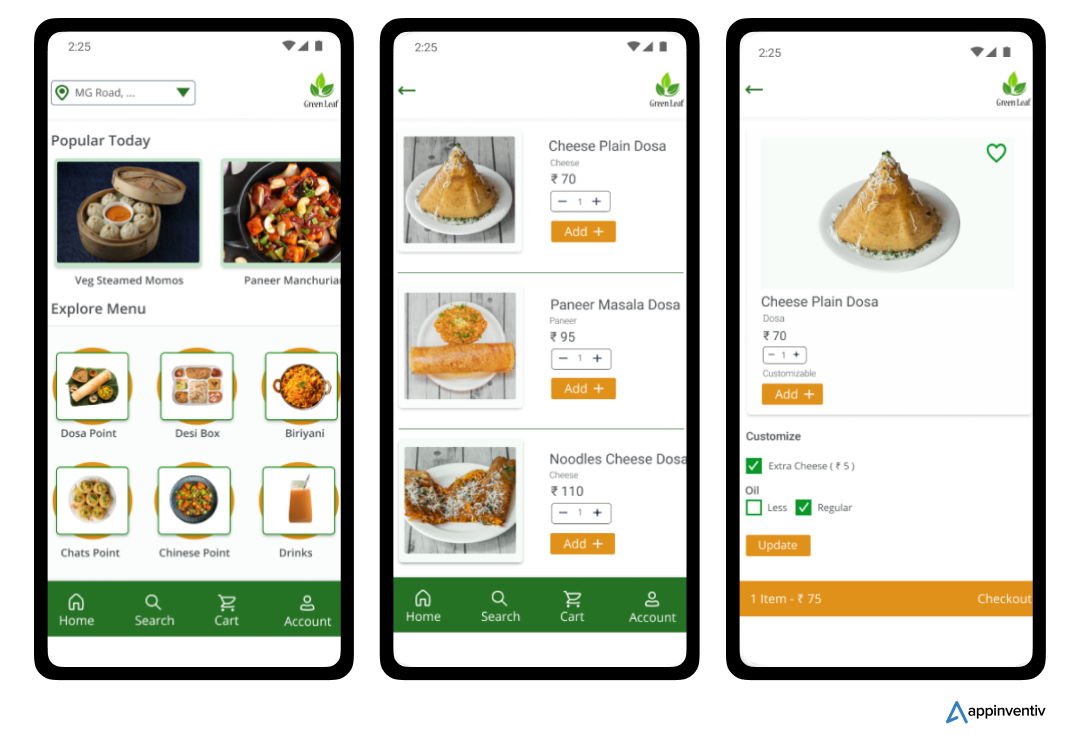
Real-time Order Tracking with GPS: Allows users to track their order’s status and delivery location in real-time.
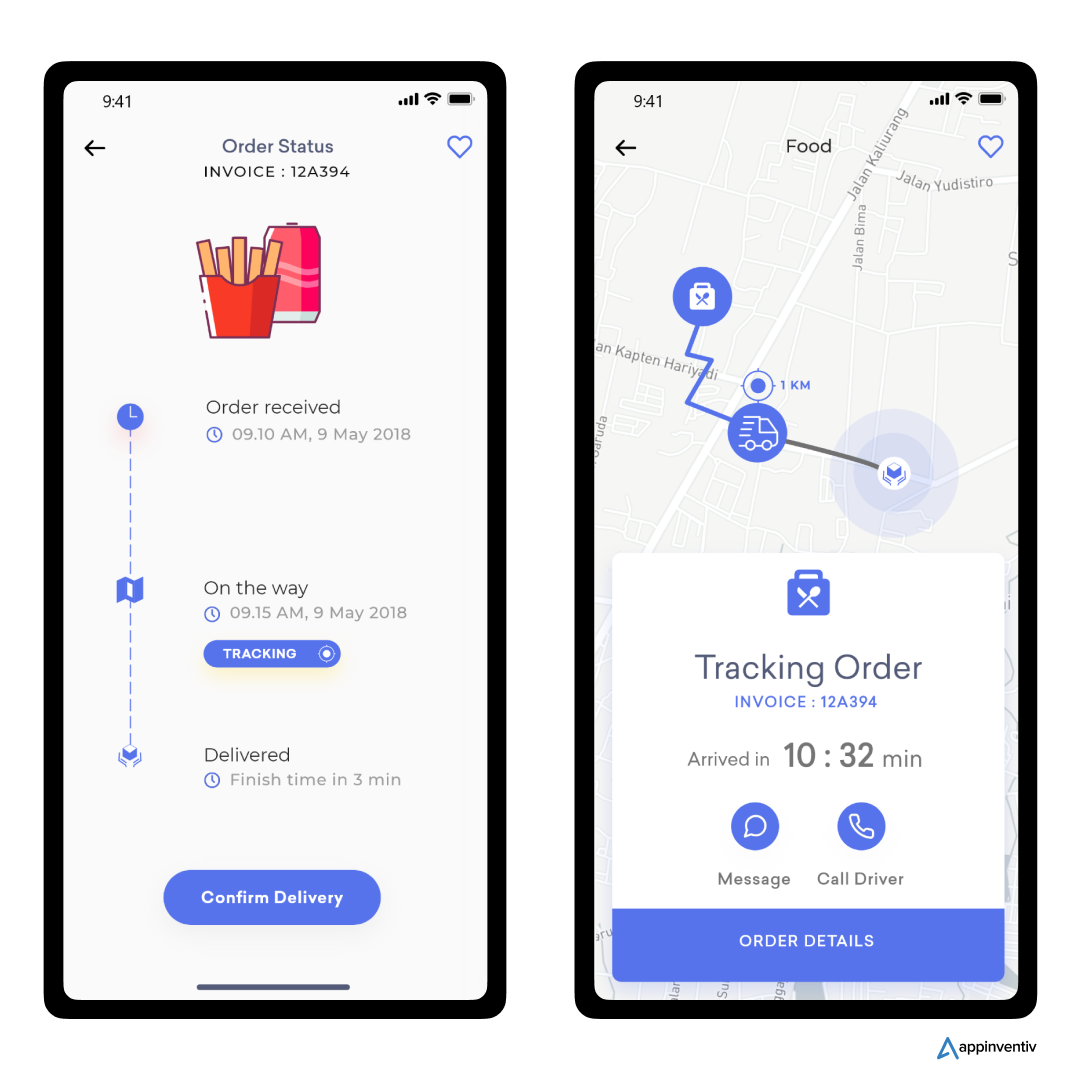
Ratings and Reviews: Users can rate and review restaurants and delivery experiences, helping others make informed choices.
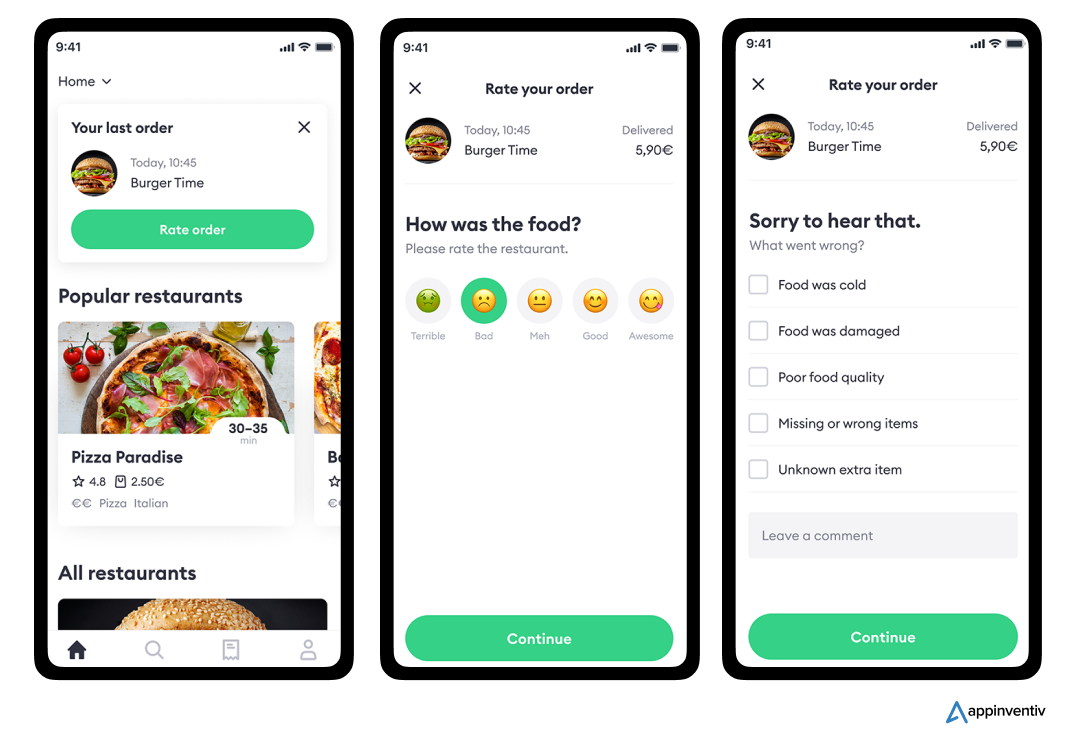
Promotions and Discounts: Offers special deals and discounts to attract and retain customers.
Favorites and Reorder: Let users save their favorite items and easily reorder them in the future.
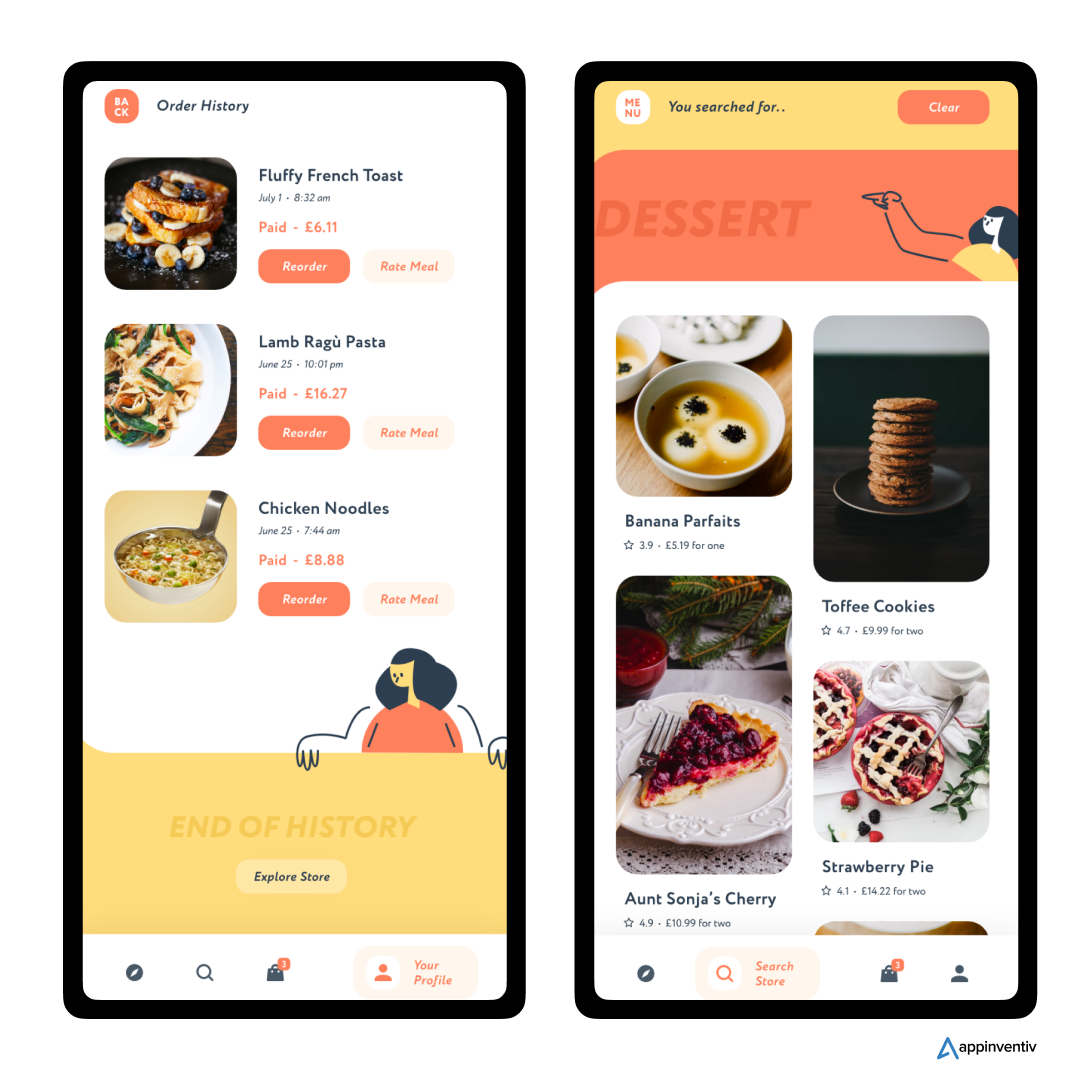
Building an App like HungerStation – Steps to Follow
Now, how can you create an app like HungerStation?
To build an app like HungerStation, start with market research and feature planning. Clearly define the core features and functionalities your app will offer. It’s crucial to work with an experienced app development service provider that specializes in food delivery apps. Ensure that the business aligns with your vision, has a successful track record, and offers comprehensive services from concept through to launch.
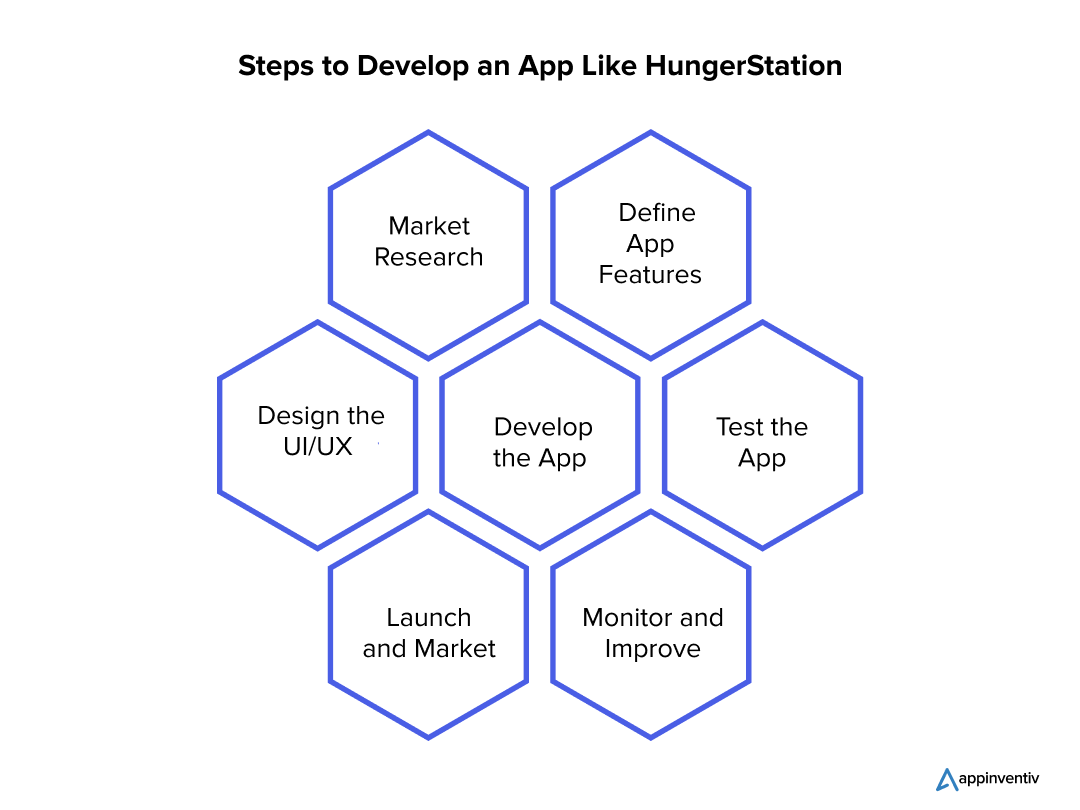
Here’s a step-by-step guide to developing an app like HungerStation:
- Market Research: Analyze the market to understand user needs, competition, and trends. This helps in identifying the unique selling proposition for your app.
- Define App Features: Decide on the core features such as user registration, restaurant browsing, order customization, real-time tracking, and payment options.
- Design the UI/UX: Create a user-friendly interface and engaging user experience. This involves designing intuitive navigation, easy menu access, and a smooth ordering process.
- Develop the App: Choose the technology stack and develop the app. This includes frontend and backend development, integrating APIs for payments, GPS tracking, and real-time notifications.
- Test the App: Conduct thorough testing to ensure all features work as intended. This includes functional testing, performance testing, and user acceptance testing.
- Launch and Market: Release the app on relevant platforms and implement a marketing strategy to attract users. This may include promotions, partnerships with restaurants, and social media marketing.
- Monitor and Improve: Post-launch, monitor user feedback and app performance. Regular updates and feature enhancements based on user feedback are crucial for maintaining app quality and relevance.
How Long Does It Take to Develop an App Like HungerStation?
As already discussed earlier, developing a food ordering app like HungerStation depends upon several factors. Depending upon the complexity of the app, it might take 3 to 9+ months. Major and complex apps might take more than a year from ideation to deployment.
How Appinventiv Helped Fast Food Giants like KFC and Pizza Hut Expand in the Middle East with Next-Gen Food Delivery App Development
Appinventiv, the trusted mobile app consulting company, played a crucial role in the digital expansion of fast food giants like KFC and Pizza Hut in the Middle East through our expertise in food delivery app development.
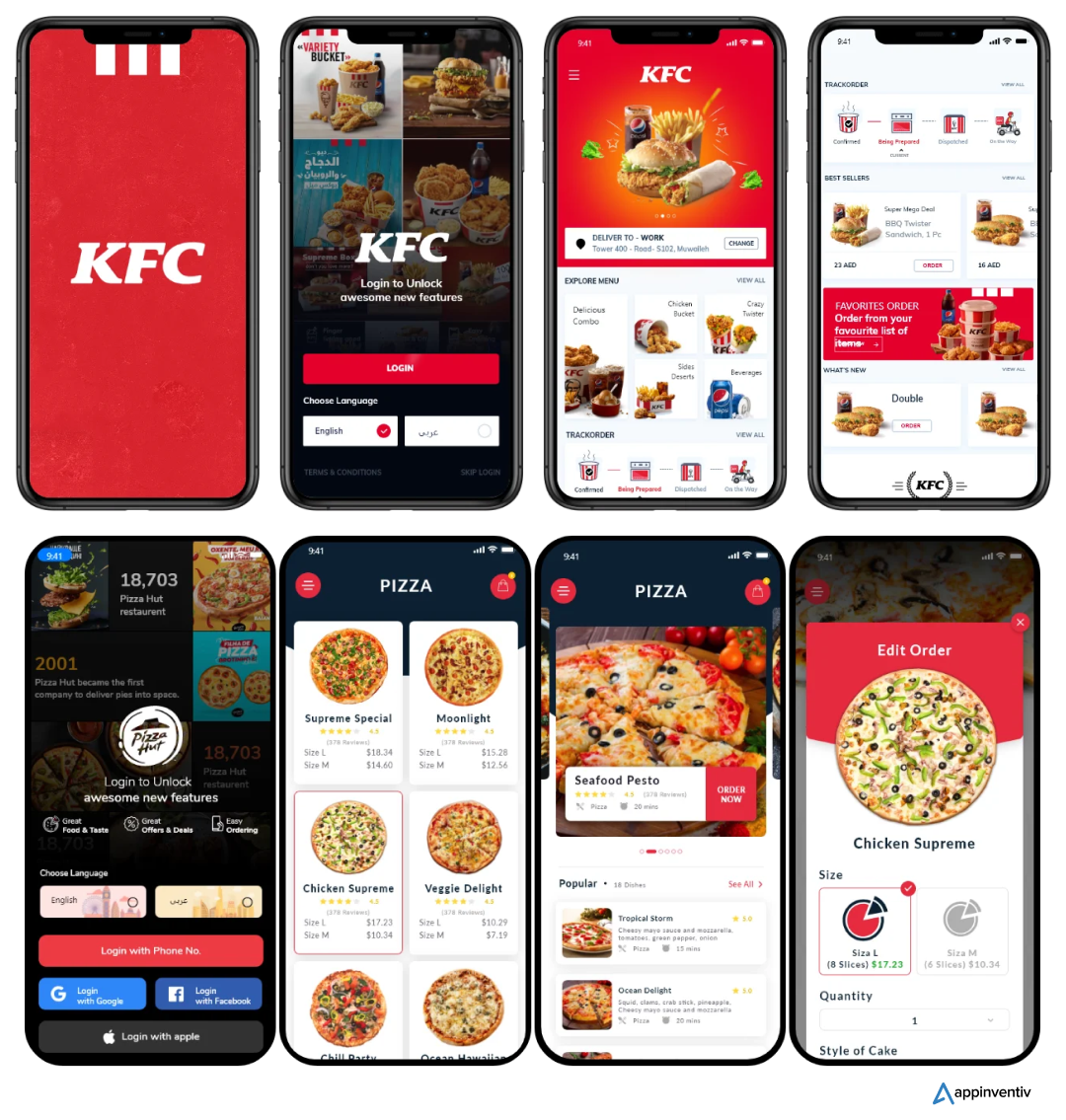
Here’s how we achieved building and incorporating the benefits of a food delivery app into KFC and Pizza Hut applications.
KFC
KFC, a renowned fast-food brand, faced challenges with food delivery aggregators as almost 90% of orders came through these platforms, resulting in increased costs and poor reviews due to subpar user experience.
To address this, the Americana Group partnered with Appinventiv to develop and launch 7 KFC mobile applications across UAE, KSA, Kuwait, Egypt, Qatar, Bahrain, and Oman within a year. This collaboration led to a
- 22% increase in conversion rates
- 4.5 average rating on app stores
- Over 50% of orders coming through the app
- Aa 60% increase in repeat purchases
Pizza Hut
Pizza Hut, a leading global fast-food chain, is operated by the billion-dollar Americana Group in the UAE. As part of Appinventiv’s project with Americana Group to develop 18 mobile applications for five of its brands within a year, we successfully launched two Pizza Hut food delivery apps in four MENA region countries: UAE, Egypt, Bahrain, and Saudi Arabia.
These apps are designed with superior UI/UX, ensuring that users can easily navigate and place orders with just a few clicks. This led to
- 50k+ app downloads
- Increased screen transition time to 7 seconds
- 30% increased conversion rate
How Does an App like HungerStation Make Money?
Food ordering apps like HungerStation generate revenue through several primary channels:
- Commission Fees: These apps charge restaurants a commission fee on each order placed through the platform. This fee is typically a percentage of the order total and is a major source of income for the app.
- Delivery Charges: Customers are often charged a delivery fee, which helps cover the cost of delivering food. This fee can vary based on distance, order size, and time of day.
- Advertising and Promotions: Apps like HungerStation offer advertising space and promotional opportunities to restaurants and food brands. This can include featured listings, banner ads, and sponsored promotions, providing additional revenue.
- Subscription Models: Some apps offer premium services or memberships to restaurants or users. For restaurants, this might include additional features or reduced commission rates. For users, it could involve benefits like free delivery or exclusive discounts.
Unlock the Potential of Saudi Arabia’s Thriving Food Delivery Market with Appinventiv
If you are wondering about the cost to develop a food delivery app like HungerStation, partnering with a successful mobile app development company like Appinventiv can be beneficial.
Appinventiv is the leading mobile app development company in Saudi Arabia, specializing in creating custom mobile solutions that fit your business needs and customer preferences. We have a lot of experience with on-demand delivery apps, so we know how to make platforms that are easy to use, strong, and able to grow with your business.
When you work with us, you get access to our expertise and tools needed to lead in the food delivery market. We are well-known for building restaurant apps that improve how you operate and engage with customers. Our continuous support and data analysis will help you stay ahead, adjust to changes, and keep improving your services.
As a renowned restaurant app development company, we are focused on developing apps that fit your needs. Get in touch with us today!
FAQs
Q: How much does it cost to build a food delivery app?
A: HungerStation-like food delivery app development cost typically ranges from $30,000 to $250,000. There are several factors that further impact the overall cost to develop an app like HungerStation including the complexity of the app, the features to be integrated, the tech stack used, the UI/UX design of the app, the location of the hired app development team, etc. It is recommended to partner with a dedicated app development firm with similar expertise in the field to get clear cost estimates per your business requirements.
Q: How long does it take to develop an app like HungerStation?
A: It usually takes 3 to 9+ months to develop a food-ordering app like HungerStation. The overall timeline for development can vary based on the app’s complexity, the integration of third-party services, the efficiency of your development process, and the number of revisions needed. Pre-development activities which include market research and post-development activities such as testing and deployment also play a crucial role in determining the total development time.
Q: What are the challenges involved in food delivery app development?
A: Developing a food delivery app involves quite a few challenges, such as:
UI/UX Design Challenges: Creating an intuitive and appealing design that provides a seamless user experience.
Tech Stack Selection: Choosing the right technology stack that supports scalability, security, and efficient performance.
Strategy Model Selection: Deciding on the most effective business model to ensure profitability and market competitiveness.
Pricing Model: Establishing a pricing strategy that attracts users while ensuring maximum ROI.
Compliance and Regulations: Navigating through legal and regulatory requirements that are relevant to food safety and data protection in your service area.
App Launch and Maintenance: Effectively launching the app and setting up an ongoing maintenance plan to deal with bugs, updates, and new feature integrations.
Q: What are the best user-side features to integrate into an app like HungerStation?
A: Essential features of a user-friendly food delivery app like HungerStation includes the likes of a straightforward signup and registration page that paves the way for easy onboarding. A well-designed user interface further ensures easy navigation while an efficient browsing feature lets the users explore different restaurants and their menus seamlessly.
In addition to this, an optimized ordering page simplifies the process of selecting and customizing the orders. Furthermore, a real-time order tracking feature allows the users to track their orders, all the way from preparation to delivery. Feedback feature, on the other hand, enables the users to leave reviews and ratings. All these features combine to make up a robust food delivery app backed by trust and quality of service.



How Much Does it Cost to Build a Food App Like Grill'd in Australia?
The surge in demand for food delivery apps is undeniable, reflecting a shift in consumer behavior toward convenience and instant gratification. As more people seek hassle-free ways to enjoy their favorite meals, these apps have risen to the occasion, not only meeting this demand but also overcoming significant challenges in the process. By addressing issues…

How Much Does It Cost to Build a Food Delivery App like Menulog?
The food delivery industry has emerged as a dominant player in the global ecosystem, driven by the increasing demand for convenience and the rapid growth of digital technology. Coming to the Australian market, platforms like Menulog are at the forefront of this trend, redefining how consumers dine by bringing a vast array of culinary options…









